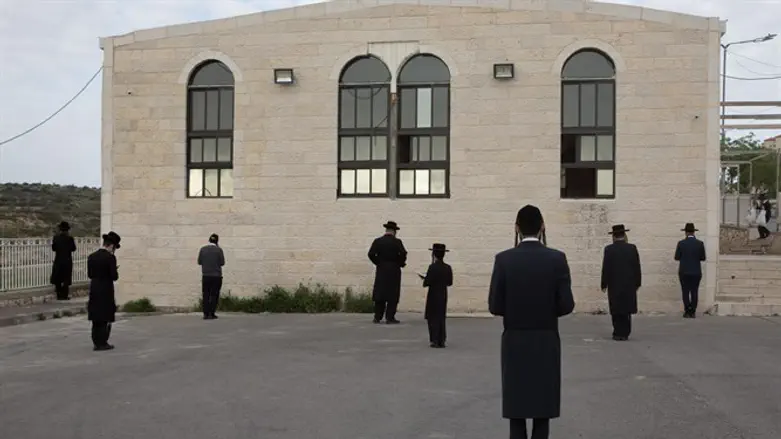
There is a trick question that teachers have been using on their classes for many, many years. When studying the Avinu Malkeinu prayer, the teacher (myself included) would ask, 'How many Avinu Malkeinus are there? The students would race to count the lines in the prayer, while the answer is, 'There is only One Avinu Malkeinu.
With that said, there are 44 lines in the Avinu Malkeinu prayer. The original Avinu Malkeinu prayer had only the first three lines - and they were first said during a fast declared because of a drought. The prayer has grown significantly since its first utterance, and has extended from fast days to the Aseret Y'mei T'shuva.
Many of the lines in Avinu Malkeinu echo the requests we make in the weekday Amida. And then more.
The Chafetz Chayim gave a Mashal (parable):
A tailor goes to a textile factory. The boss of the factory welcomes him, and with clip-board in hand, asks for his order. The tailor orders yards and yards of many different fabrics, many spools of thread in different colors, dozens of needles ... (you get the point). The factory boss totals the order and then asks about payment. The tailor lowers his voice and embarrassedly tells the guy that he has no money or credit at this time, but he would still like his order filled.
Says the Chafetz Chayim, that's what we do in Avinu Malkeinu. We ask G-d for many different things - forgiveness, good health, prosperity, to tear up evil decrees, give us victory and success over enemies, disease ...
And at the end of the prayer, we say - Avinu Malkeinu, our Father our King, have mercy and pity on us, KI EIN BANU MAASIM - because we have no good deeds and merits. Grant our requests out of Your infinite Kindess.
Is it any wonder, concludes the Chafetz Chayim, that there is a common custom to lower ones voice and say KI EIN BANU MAASIM very quietly.
Apparently, that was a minhag whenever and wherever. But we are used to a different final line in Avinu Malkeinu. In many shuls (and outdoor minyanim) we sing the last line, sometimes over and over again, loudly, with KI EIN BANU MAASIM boldly joining the rest of the line.
How come we do that, without the apparent contrition that the Chafetz Chayim was talking about?
After each set of Shofar blasts during the repetition of the Amida, we say: IM K'VANIM IM KAAVADIM ... We come before you, our Father our King. If we are Your children, have mercy on us as a father has for his children. If as servants, we look to You until You will pardon us.
AVINU MALKEINU. We say it 44 times. But we are hoping and praying that the dominant relationship between G-d and us is as Parent to child. More so than King to servant. Clearly G-d is both, and we acknowledge that with the phrase AVINU MALKEINU.
As servants of the King, fear is the over-powering motivator and we would whisper the words KI EIN BANU MAASIM. But as BANIM LAMAKOM, the motivation to regret and do T'shuva is a blend of AHAVA and YIR'A - love and fear. The child is more prone to tell his father of his lack of merit. The servant really does not want to bring that up.
We need to develop our Love of G-d and to be worthy of His Love of us. Then we can sing KI EIN BANU MAASIM, and then we must do many things about that situation with the keeping of mitzvot more meticulously and by doing many Maasim Tovim.
